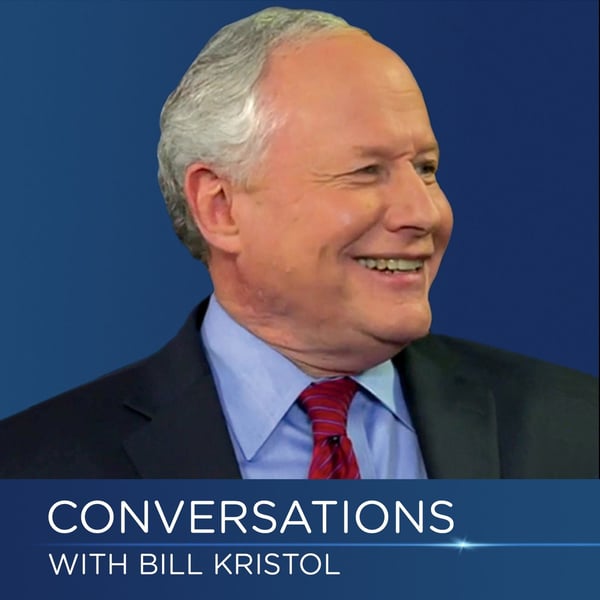Jim VandeHei: The Transformation of our Media Landscape and Its Political Implications
Conversations with Bill Kristol
Conversations with Bill Kristol
4.7 • 1.7K Ratings
🗓️ 19 September 2019
⏱️ 78 minutes
🧾️ Download transcript
Summary
Transcript
Click on a timestamp to play from that location
| 0:00.0 | And the Hi, I'm Bill Crystal. Welcome to Conversations. I'm pleased today to be joined by Jim |
| 0:19.1 | Vantahai, the founder and CEO of Axios very successful online publication before that |
| 0:25.2 | founder and CEO of political another very successful publication must |
| 0:29.6 | treat and before that when we first met a reporter, a lowly reporter, |
| 0:34.1 | and an old-fashioned print newspapers like |
| 0:37.6 | I think we met first about you were at the Washington Post maybe. |
| 0:39.7 | Washington Post and Wall Street Journal. |
| 0:42.0 | I really think I think of no one better to discuss media, the transformation of media, where |
| 0:47.3 | we're going, where we might be dangers and opportunities and so forth. |
| 0:51.0 | So what should we think? Where we are we is it really not |
| 0:55.6 | change as much as people say and you know people are exaggerating it of course |
| 0:58.9 | there's the internet but at the end of the day it's you know it's not it's not, it's still media, it's still |
| 1:05.0 | print, it's still people reporting and so forth, or have we really in the middle |
| 1:08.9 | of pretty fundamental transformation, do you think? |
| 1:11.5 | Pretty fundamental transformation. |
| 1:13.7 | If you mean, think about, I think about it a lot through like the lens of my own career in that I was |
| 1:19.0 | a traditional reporter. |
| 1:20.5 | I worked my way up at a relatively young age to cover the presidency and |
| 1:23.8 | cover covered for the post and in the Wall Street Journal and then media |
| 1:28.8 | really started to change in the mid 2000s like 2005 2006 we launched political in 2007 and I think most people |
| 1:37.8 | realize that most of that change was spurred by the internet right and the ability for people to get a lot of information for free. |
| 1:47.0 | And at that point, maybe one of the biggest tactical blunders in the history of industry, |
... |
Please login to see the full transcript.
Disclaimer: The podcast and artwork embedded on this page are from Conversations with Bill Kristol, and are the property of its owner and not affiliated with or endorsed by Tapesearch.
Generated transcripts are the property of Conversations with Bill Kristol and are distributed freely under the Fair Use doctrine. Transcripts generated by Tapesearch are not guaranteed to be accurate.
Copyright © Tapesearch 2025.

